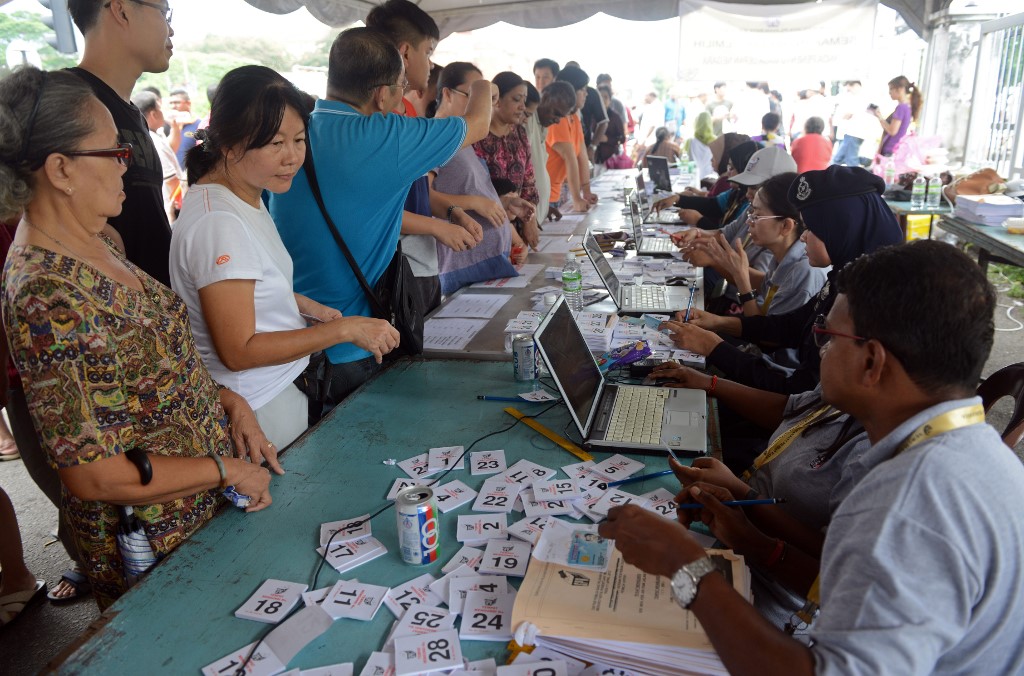Bring in foreign observers, Putrajaya’s polls reforms body tells govt
The Electoral Reform Committee also backs the automatic registration of voters and doing away with politicians playing a dual role as MP and assemblyman.
Just In
Putrajaya’s Electoral Reform Committee (ERC) has proposed that international observers be invited to monitor general elections, more than three decades after the government agreed to allow a group of observers from Commonwealth nations during nationwide polls.
The proposal on foreign observers is one of 49 recommendations which the ERC submitted to the government in August.
It said having an international team of observers would strengthen the credibility of polls in Malaysia, adding that the practice has been adopted by neighbouring countries such as the Philipines, Indonesia and Thailand.
However, the ERC said the proposal could only be formalised by amending election laws and making provisions for the presence of local and foreign observers to monitor general elections.
“It is seen as a practice that will ensure free and fair elections,” the ERC said in its exhaustive report seen by MalaysiaNow.
It added that foreign monitors are a norm in mature democracies, where their presence is legally sanctioned.
It also believes that the move will bring Malaysia’s democractic system on par with that of developed nations where neutral polls observers are seen as crucial to the running of elections.
“It is seen as a practice that will ensure free and fair elections.”
The only general election where foreign observers were officially allowed was in 1990.
This was the first general election for then-prime minister Dr Mahathir Mohamad, whose ruling Umno was still reeling from a major crisis caused by a challenge mounted by Kelantan politician Tengku Razaleigh Hamzah for the top post.
Umno eventually split and was de-registered, with Razaleigh leading a new party called Semangat 46, teaming up with PAS in the 1990 election.
In 2008, a team of observers calling itself Malaysian for Free and Fair Election (Mafrel) was allowed by then-chairman of the Election Commission, Abdul Rashid Abdul Rahman.
Rashid now leads the ERC, which was tasked by the previous Pakatan Harapan government with addressing weaknesses in the electoral system.
- ERC calls for end to GE guessing game, nomination day
- ERC boss confident govt will accept all 49 recommendations
Rashid recently expressed confidence that all of the ERC’s recommendations would be implemented.
They include a suggestion to remove the advantage of the government in power to surprise its rivals with the dissolution of Parliament, as well as an end to gatherings for nomination day.
Automatic registration
The ERC’s list also includes a call on the government to implement automatic voter registration, enabling every eligible citizen to cast their vote.
“The voter list is a basic element that determines whether an election is carried out in a free, fair and transparent manner – in other words, a credible election,” the report said.
It said it is supportive of calls for automatic registration to replace the current system.
Last year, MPs passed a bill to enable the automatic registration of voters, as well as to allow 18-year-olds to vote and become candidates.
However, one estimate said more than four million Malaysians above the age of 21 have not registered as voters.

Former EC chairman Azhar Harun had said that the automatic registration of voters would require amendments to the Federal Constitution as well as the Elections (Conduct of Elections) Regulations 1981.
One candidate, one seat
Meanwhile, the ERC said no candidate should be allowed to contest two seats, as is currently the practice.
Some senior politicians are state assemblymen as well as MPs, including Prime Minister Muhyiddin Yassin who is both MP and assemblyman in Johor (Pagoh and Gambir), DAP secretary-general Lim Guan Eng (Bagan and Air Putih in Penang), former Perak menteri besar Ahmad Faizal Azumu (Tambun and Chenderiang in Perak), former Kedah menteri besar Mukhriz Mahathir (Jerlun and Jitra) and senior minister Mohamed Azmin Ali (Gombak and Bukit Antarabangsa in Selangor).
Others with a dual role as MP and assemblyman are Umno’s Bung Moktar Radin (Kinabatangan and Lamag), Warisan’s Shafie Apdal (Semporna and Senallang), Amanah’s Salahuddin Ayub (Pulai and Simpang Jeram), and PKR’s Saifuddin Nasution (Kulim Bandar Baru and Pantai Jerejak).
The ERC views the practice as outdated.
“In the early stage of Malaysia’s democracy, the reality was that only a small group of people were seen as educated and qualified to become people’s representatives,” it said.
“However, the situation has changed, and more Malaysians are qualified to represent the people.”
‘More women please’
Noting that half of all voters are women, the ERC is also proposing that they make up 30% of the candidates.
“This suggestion is in line with the view that more women should join politics and administration, as well as become decision makers,” it added.
Subscribe to our newsletter
To be updated with all the latest news and analyses daily.



